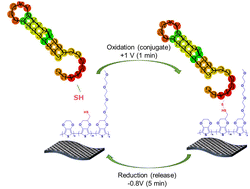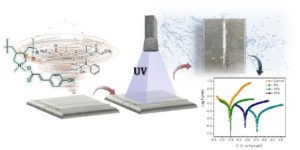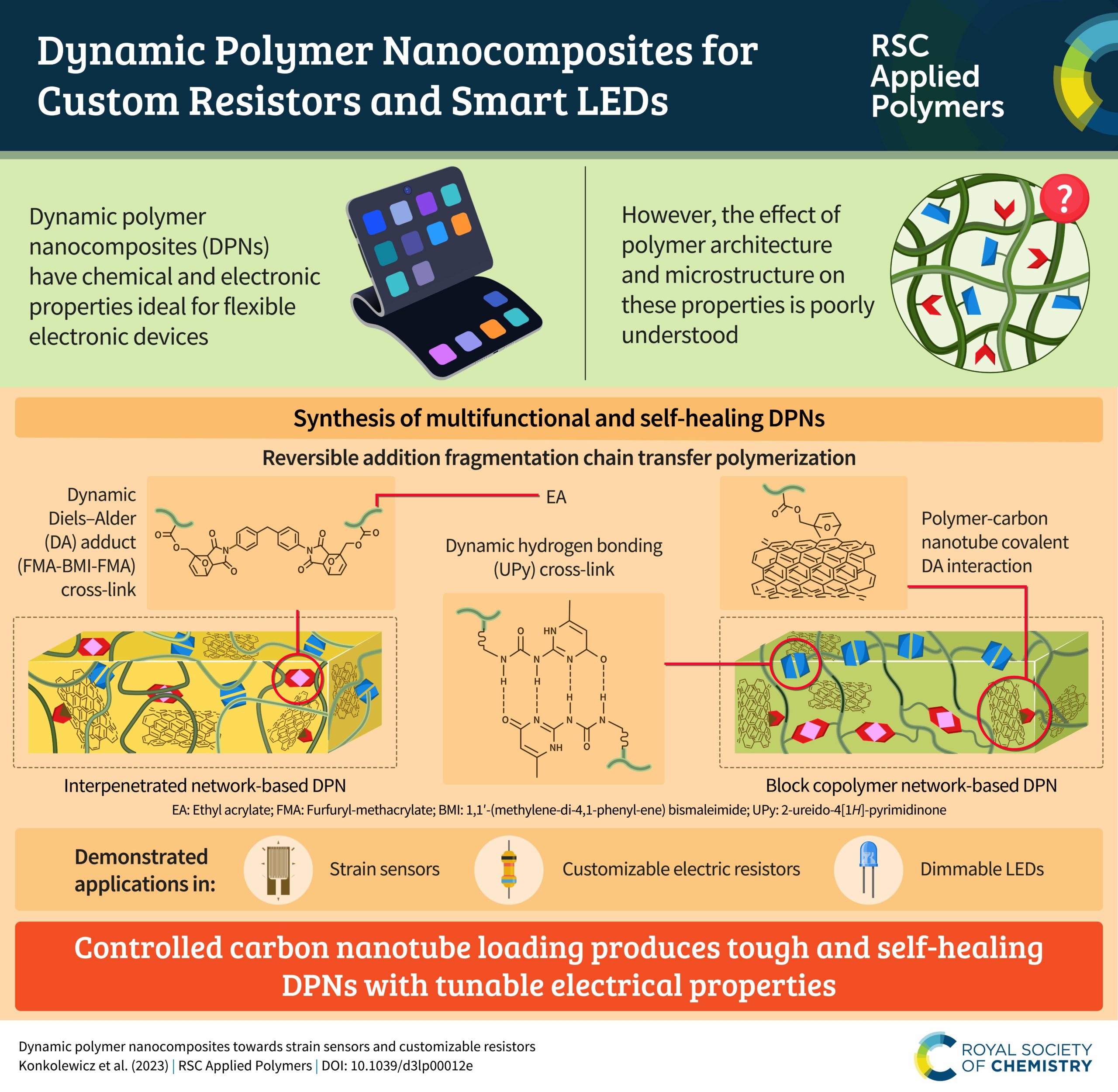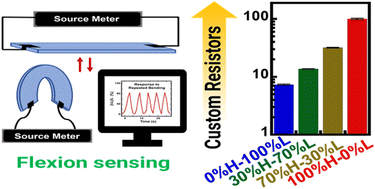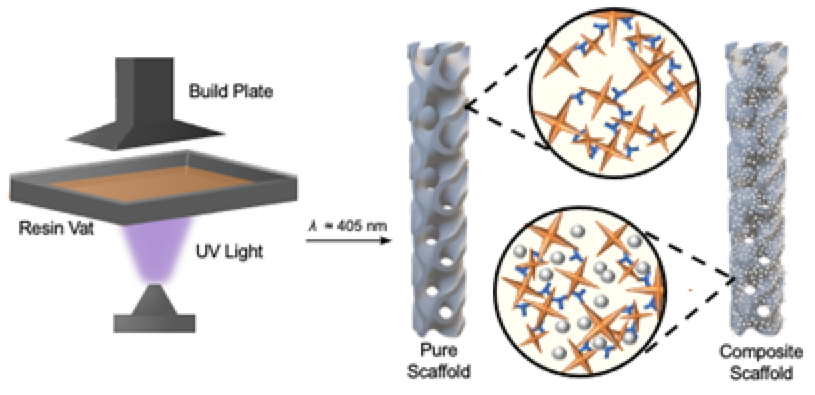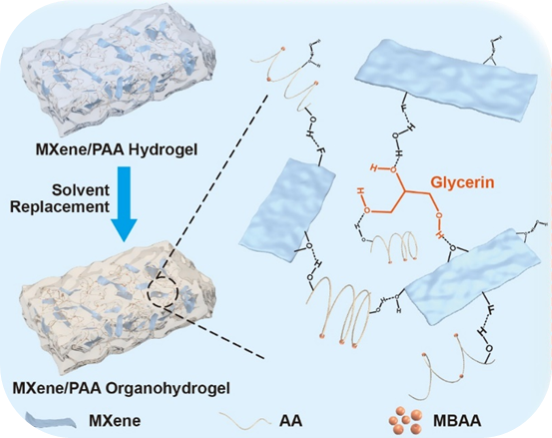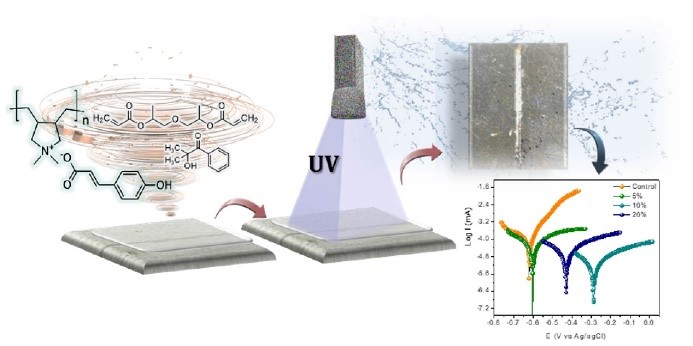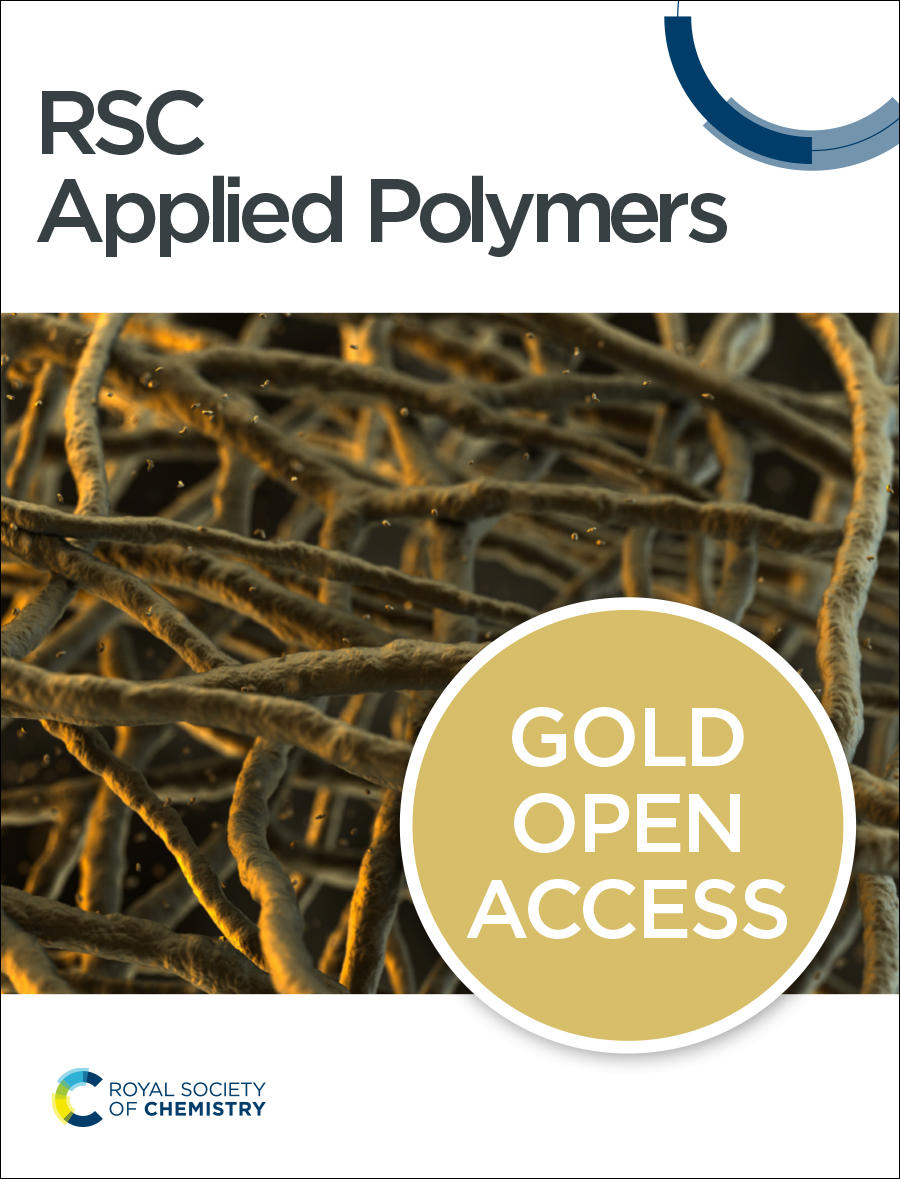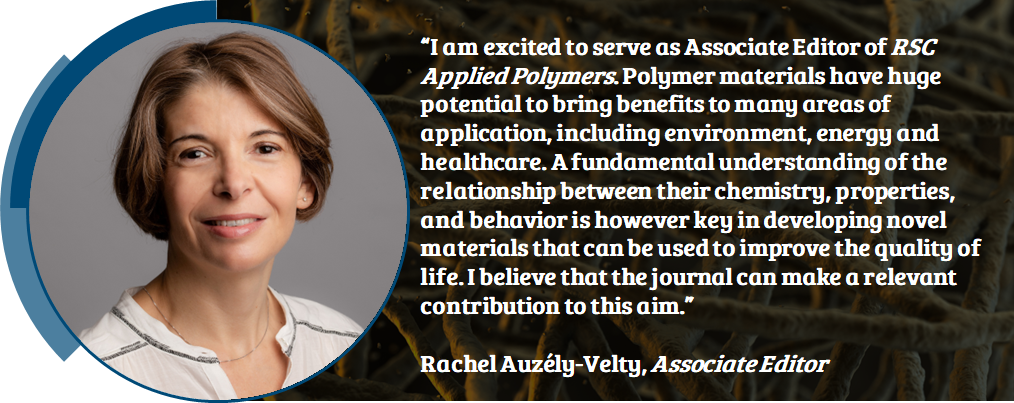
RSC Applied Polymers has published its first articles. To celebrate this, we asked the authors to discuss their work in some more detail.
In this edition, we hear from Sara Beikzadeh about their study entitled Porous bioelectronic substrates for simple electrochemical conjugation and subsequent, controlled electrochemical release of antisense oligonucleotide drug.
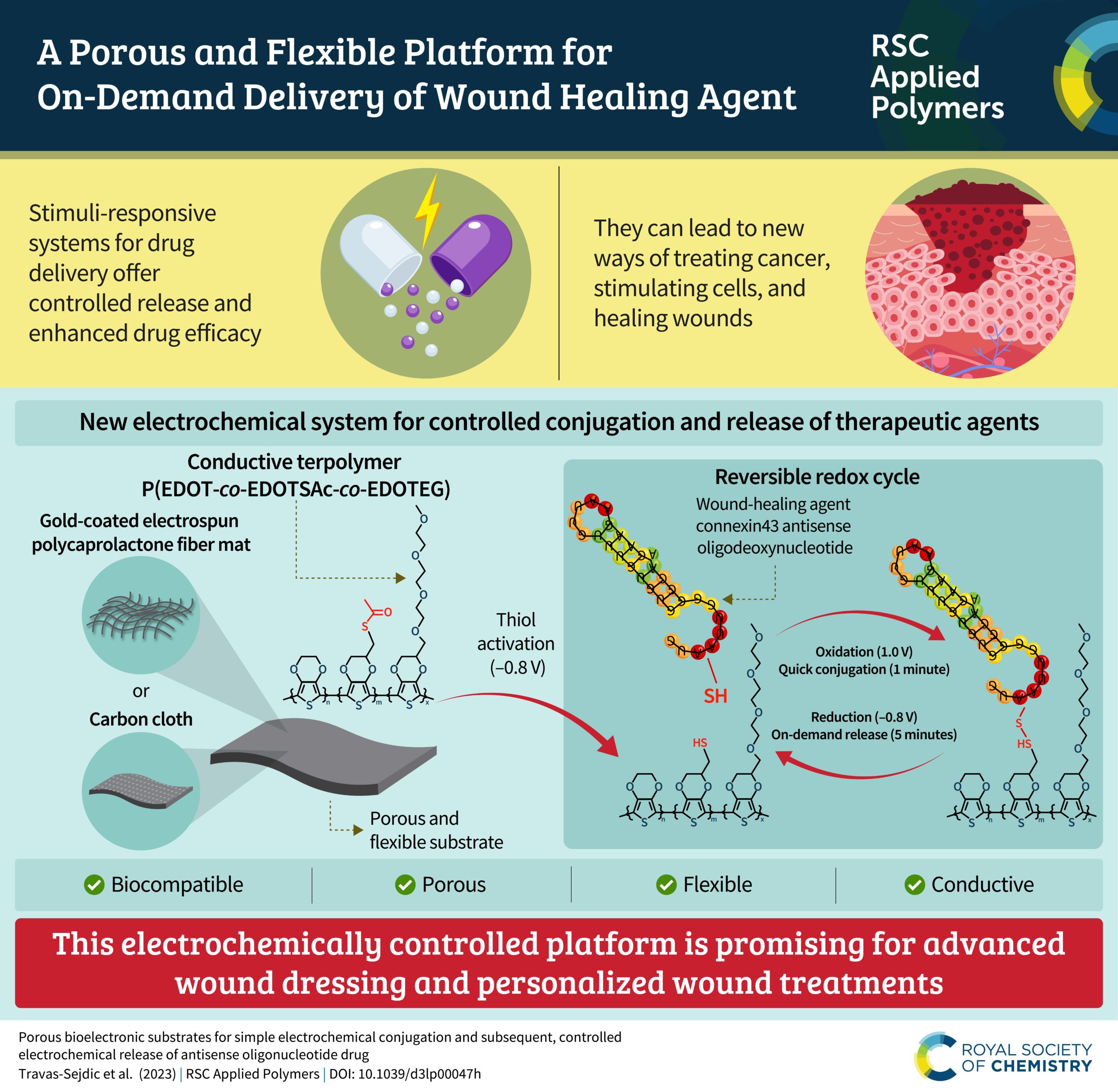
Want to know more about their work? Read the full paper here!
Sara Beikzadeh, Devon T. Bryant, Alireza Akbarinejad, Lisa I. Pilkington, Anthony R.J. Phillips and Jadranka Travas-Sejdic
RSC Appl. Polym. 2023, Advance Article, DOI: 10.1039/D3LP00047H
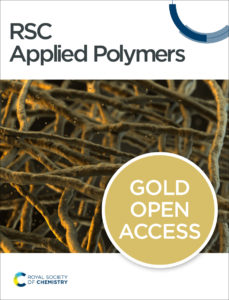 |
RSC Applied Polymers is a leading international journal for the application of polymers, including experimental and computational studies on both natural and synthetic systems. In this journal, you can discover cross-disciplinary scientific research that leverages polymeric materials in a range of applications. This includes high impact advances made possible with polymers across materials, biology, energy applications and beyond.
|


